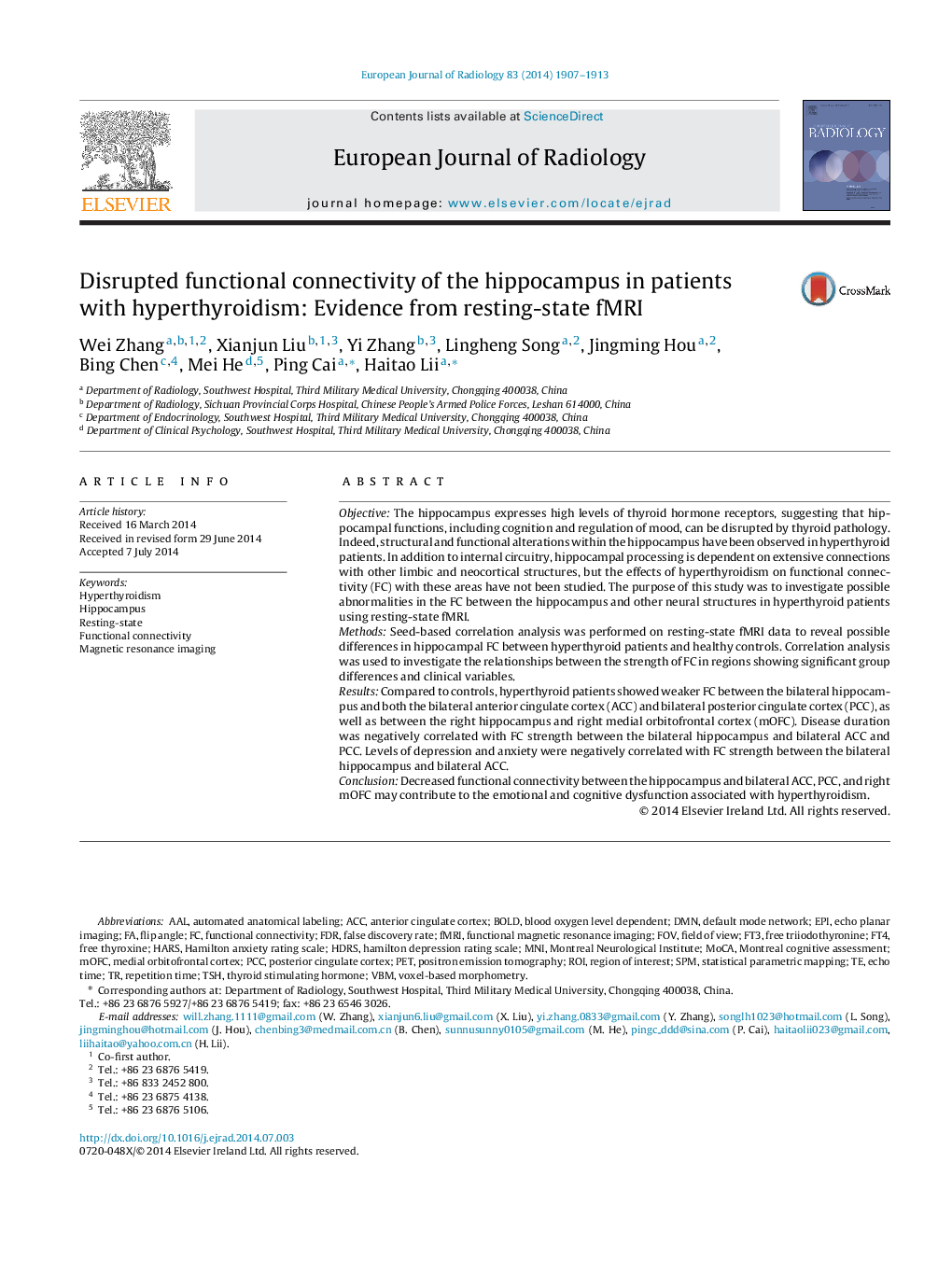| Article ID | Journal | Published Year | Pages | File Type |
|---|---|---|---|---|
| 4225378 | European Journal of Radiology | 2014 | 7 Pages |
ObjectiveThe hippocampus expresses high levels of thyroid hormone receptors, suggesting that hippocampal functions, including cognition and regulation of mood, can be disrupted by thyroid pathology. Indeed, structural and functional alterations within the hippocampus have been observed in hyperthyroid patients. In addition to internal circuitry, hippocampal processing is dependent on extensive connections with other limbic and neocortical structures, but the effects of hyperthyroidism on functional connectivity (FC) with these areas have not been studied. The purpose of this study was to investigate possible abnormalities in the FC between the hippocampus and other neural structures in hyperthyroid patients using resting-state fMRI.MethodsSeed-based correlation analysis was performed on resting-state fMRI data to reveal possible differences in hippocampal FC between hyperthyroid patients and healthy controls. Correlation analysis was used to investigate the relationships between the strength of FC in regions showing significant group differences and clinical variables.ResultsCompared to controls, hyperthyroid patients showed weaker FC between the bilateral hippocampus and both the bilateral anterior cingulate cortex (ACC) and bilateral posterior cingulate cortex (PCC), as well as between the right hippocampus and right medial orbitofrontal cortex (mOFC). Disease duration was negatively correlated with FC strength between the bilateral hippocampus and bilateral ACC and PCC. Levels of depression and anxiety were negatively correlated with FC strength between the bilateral hippocampus and bilateral ACC.ConclusionDecreased functional connectivity between the hippocampus and bilateral ACC, PCC, and right mOFC may contribute to the emotional and cognitive dysfunction associated with hyperthyroidism.
